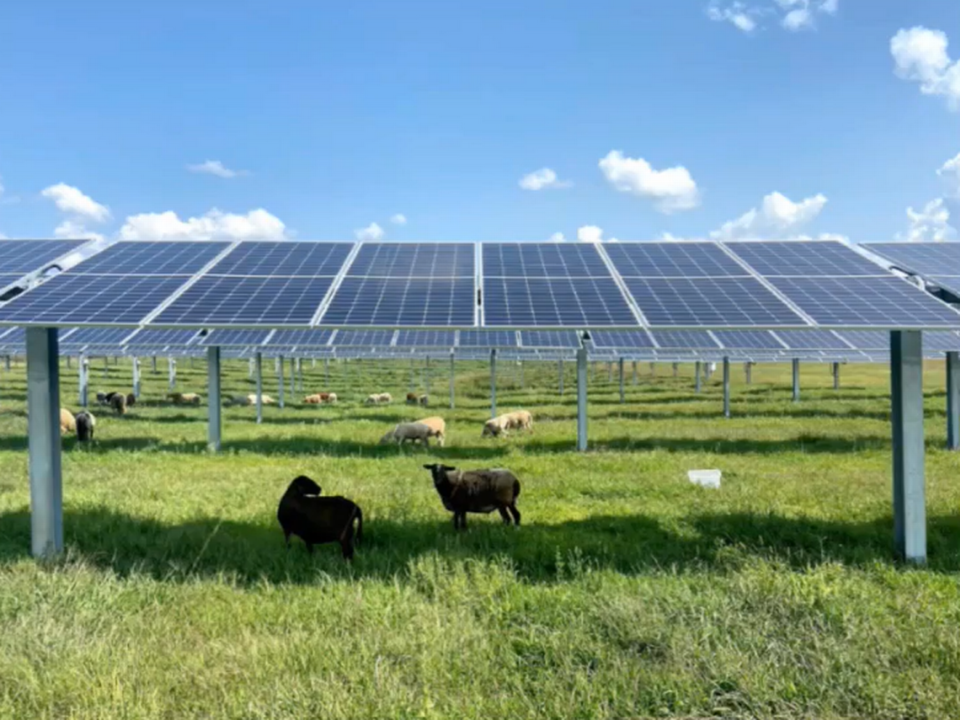California is pushing away clean-energy investors who want to spend their money here | Opinion
When President Joe Biden signed the Inflation Reduction Act two summers ago, it set the stage for a historic investment in clean energy — one that seemingly put California in prime position to benefit. After all, our state leads the nation in clean-energy investment, and the U.S. Department of Energy estimates this sector could produce up to 380,000 new jobs in this state by 2030.
But unless the California Legislature acts quickly, the state stands to squander this opportunity.
The problem? Under current California tax law, clean-energy investors who take advantage of the new federal tax credits would have to pay state income taxes on the value of those credits, greatly diminishing their incentive to invest in California projects. The Internal Revenue Service does not treat the credits as taxable, but California does.
Opinion
As a result, federal credits would be worth far more in Arizona, Oregon and every other Western state, plus Texas and Florida. All have tax codes that conform to the federal law’s tax-free treatment of the sale of renewable energy tax credits, and all would be better positioned to attract investment in wind, solar, battery storage and other clean energy projects.
Given California’s bold commitment to achieve 100% renewable electricity generation by 2045, this state needs to build 148,000 megawatts of new clean capacity. It is an audacious goal, and one that will be difficult to achieve if California effectively tells investors that they can get a better deal by spending their money elsewhere.
A bill to bring California back in line with the tax-free treatment of these clean-energy incentives is stalled in the State Senate, and time is running short for lawmakers to send it to Gov. Gavin Newsom before they adjourn at the end of August. It would be self-destructive folly not to do so.
The financing of clean-energy projects is complicated: They require significant upfront investment for projects that, once built, will be producing energy long into the future. The ability of renewable energy developers to sell these new federal tax credits to investors can enable their projects to pencil out — and to hold in check future energy costs.
These tax benefits not only make it far more likely that clean energy projects will get financed, but also enable the company to sell the power at lower electricity rates, benefiting ratepayers.
None of this is hypothetical. Consider the case of Wellhead Electric, developer of the 50-megawatt Chula Vista Energy Center, a battery storage project. Wellhead has five other projects in the works in California. The financing for each is based upon the tax-free sale of the tax credits for both federal and California tax reporting.
If California is so foolish as not to take advantage of this tax-exempt federal investment, all of these projects will be jeopardized. Even if they were to go forward, costs would rise significantly, and ratepayers would pay more for electricity.
How much — or even whether — it would cost the state to fully unleash the power of the federal green-energy incentives is uncertain. The Franchise Tax Board says that since it is unknown how much investment would be stimulated, it can’t provide an estimate.
There are, however, many things that are knowable. We know that since 2021, private sector companies have announced about $18 billion in clean power projects in California and that the sector has been a core engine for job and economic growth. And we know that all the revenues this activity generates will be dampened unless the legislature acts.
We also know that the state just weathered a severe heat wave of record duration and was able — thanks largely to renewable sources — to keep all those air conditioners running. We also know it will just keep getting hotter if we keep burning fossil fuels.
In short, we know enough to do the right thing. California must seize this historic opportunity to spur investment in clean energy.
A leader in California’s clean energy transition for more than three decades, V. John White is the executive director of the Center for Energy Efficiency and Renewable Technologies, based in Sacramento.


